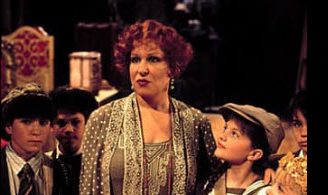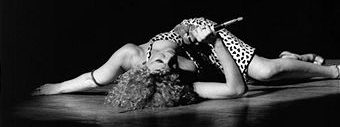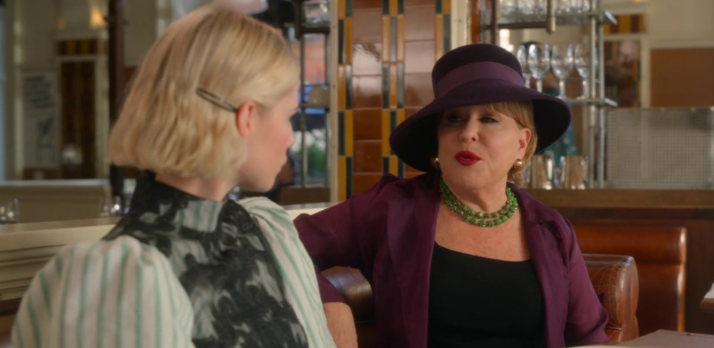Screenrant
Seinfeld: Every Season Finale Ranked (According To IMDb)
BY ANTHONY FERTINO
JAN 08, 2020

With 9 seasons, which Seinfeld finales were the worst? Which were the best? From the Summer Of George to Kramer moving to L.A here’s the IMDB ranking.
Seinfeld became one of the most successful sitcoms of all time by treading new ground with a singular, hilarious vision. True, it took some time to fully realize that vision, but the series’ stride was an undeniably well-earned strut. The show was always conceptually infectious, well-performed, and unusually well written. Now, perhaps even more so than a premiere, a finale can test audiences.
Endings can validate your established investment, or even promise something better yet to come, a pardon of sorts. Including the divisive final word on the show, here’s how fans on IMDb ultimately ranked nine years of finales on Seinfeld.
9. Season 1: The Stock Tip – 7.6
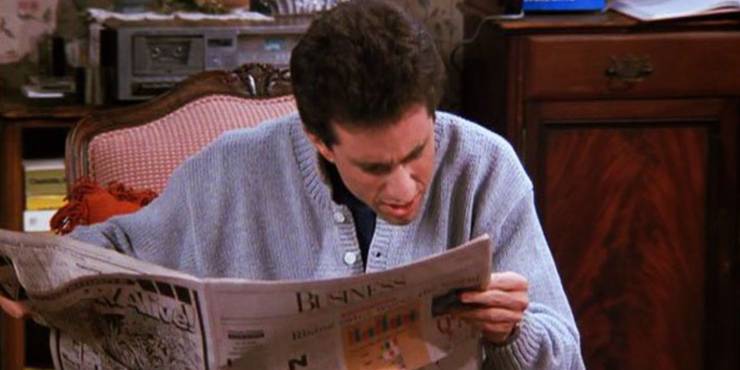
Like its inaugural kin, this episode is relatively simple, which isn’t on brand in retrospect. In many regards, the first season was one end of the tonal spectrum, while season nine was on the other. By the time this show cemented its innovative formula, each of the protagonists had some plot of their own. Here, a great majority of the episode is about some stocks that George and Jerry are convinced to invest in.
This storyline even infects Jerry’s relationship issues, which aren’t especially intriguing. Overall, it’s an unexpectedly dull episode, with plenty to offer but little to show. The jokes have potential, but the meandering pace ultimately detracts from inducing the creativity expected of this generally brilliant show.
8. Season 9: The Finale – 7.6
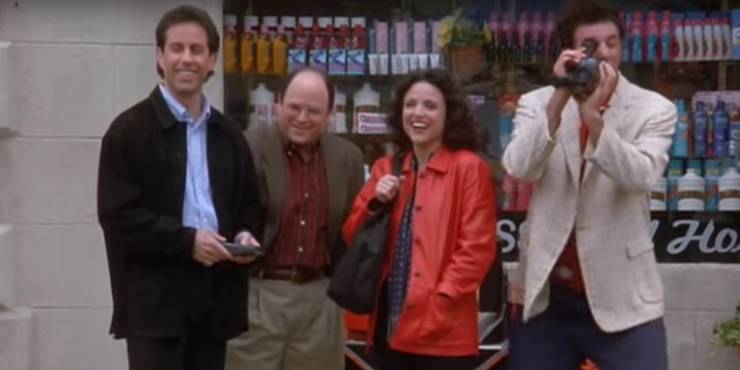
This extraordinarily controversial episode has been discussed to no end, with defenders and detractors alike wielding strong arguments. Ultimately, the perpetually dissatisfied characters had indeed grown more apathetic over the years. George’s utterly selfish attitude regarding a major death was particularly stark. The characters can’t stand to lose their private jet, or even hear it’s a nice day. So, teaching the characters some humility feels due. In fact, promising them everything they could want, and then robbing them of it is the perfect Larry David move. It subverts every expectation with daring cynicism.
Further, season nine spent its entirety strictly within the realm of implausibility. To question the conceit of the court case after twenty-odd ludicrous episodes seems unfair. Unfortunately, half the episode is essentially a clip show, offering closure for minor characters, yet casting our protagonists aside. Also, the inciting incident feels like an uncharacteristic leap of coldness—certainly for Kramer. Perhaps the near-death experience rattled them—but they didn’t gain one ounce of clarity. Either way, many fans were probably expecting a more involved plot, regardless if its ending was happy or sad.
7. Season 2: The Busboy – 7.8
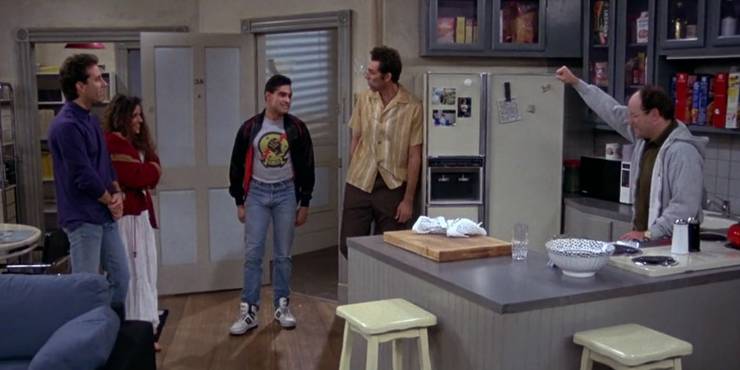
This season doubled down on the episode count, while the writing developed more robust plots. In this case, the escalation of George’s failed attempts to help the titular busboy are terrific. Jason Alexander has always wielded George’s awkwardness with ease. The increasingly awful consequences of George’s sympathies are simple yet fun, particularly inventive with the ending twist.
The writing is distinctly learning to tie plots together more frequently, as later episodes ultimately settled into. Elaine, meanwhile, has a hilariously manic sequence after waking up late. The camera dizzily follows her while she desperately insists on getting rid of the unwanted guest. It’s truly a shame her storyline wasn’t allotted more time, a balance acquired over time.
6. Season 6: The Understudy – 8.1
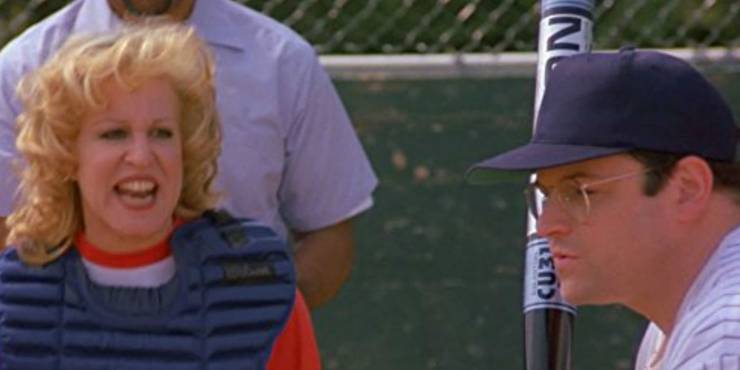
Bette Midler plays herself in this odd finale, which begins without Jerry’s stand-up but dives right into a joke. Unfortunately, that joke turns out to become rather silly. Jerry is dating an overly sensitive woman who can stream tears over anything, even dropping a hot dog. It’s a bit much, and loses its appeal, although the first scene with Jerry’s inner monologue is enjoyable. Bette Midler does fine, but the true star of the episode is Jerry Stiller.
His remarkable comedic chops always carry a scene. If anything, Midler’s presence actually seems to keep all of the protagonists disjointed. Still, this is also the first appearance of J. Peterman, which wouldn’t have been especially notable back then. But for binging today, it’s definitely promising of memorable content ahead, like that playful Apocalypse Now reference.
5. Season 3: The Keys – 8.5
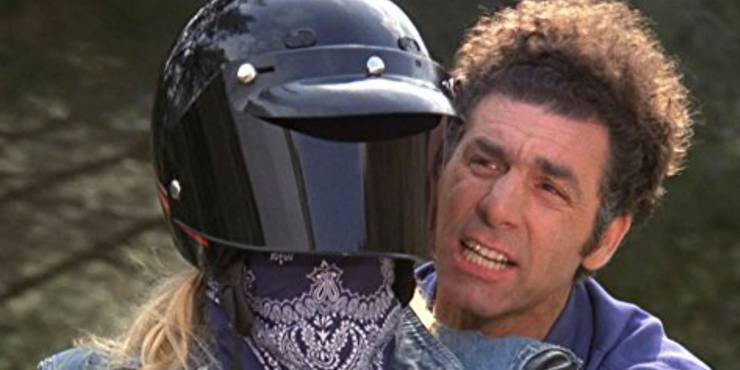
The musical chairs of everyone’s keys makes for plenty of fun, as the episode deconstructs a single social norm throughout. It’s a conceptually robust plot that allows everyone to converge, while Kramer goes off on some zany adventure, as usual. The ethics of misusing someone’s spare keys starts off with a bang, treating viewers to a montage of Kramer’s antics.
Theoretically, Kramer’s travel storyline should have been funnier, but the remaining trio have an impeccable plot. Invasion of privacy, and the resulting exchange of keys, lead to some classic verbal bouts. Even the Murphy Brown reference fits, because it feels organically unexpected, as opposed to later meta-references.
4. Season 8: The Summer Of George – 8.7
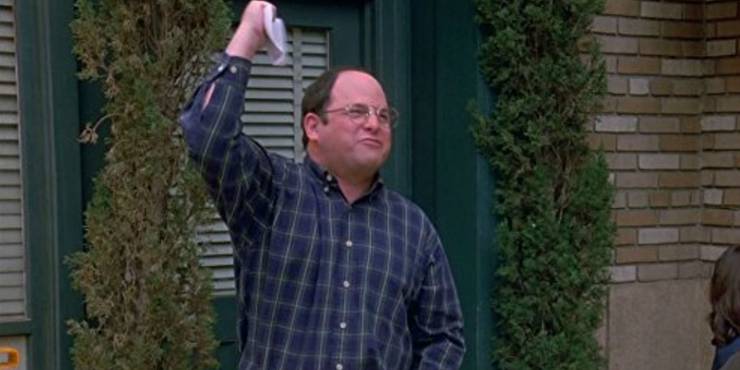
By this point, the series was another animal altogether from its neurotic roots. It distanced itself from mere quirks to outright farce. Still, despite the new direction, a great deal of the writing was consistently on point in that new regard. Here, George somehow finds a way to become even more self-indulgent, but eventually gets wrapped up in helping Jerry with a busy girlfriend.
Played by Amanda Peet no less, one of multiple guest stars in this classic finale. Molly Shannon and the double-standard of “catfights” are terrific, though Raquel Welch can’t get away with that SNL excess on screen. George’s ironic ending, due to a dropped invitation, is a clear indicator that the characters would invariably be punished for their callousness.
3. Season 4: The Pilot – 8.7
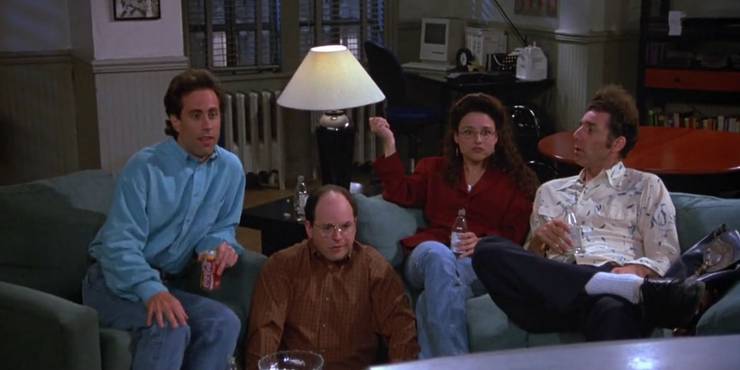
Season four is arguably one of the highlights of the entire series. This capper really leans into the meta spirit of the show, finally envisioning the pilot George once compromised. Aired in two parts, this extra-long episode reveals just how much steam the sharp writing can sustain. Casting the in-episode show, particularly regarding Kramer, results in plenty of fun hijinks.
The missing raisins, and the actual Kramer’s yearning involvement are cleverly escalated with the aloof actor playing him. True, Elaine’s crusade against the unfair employment isn’t especially funny, despite its potential. And the alternate Elaine’s method acting is an unexpected trope. But the rest is absolutely brilliant, as the inter-personal messiness of show business delivers. The real Elaine definitely shines after she decides to reject Russell Dalrymple.
2. Season 7: The Invitations – 8.8
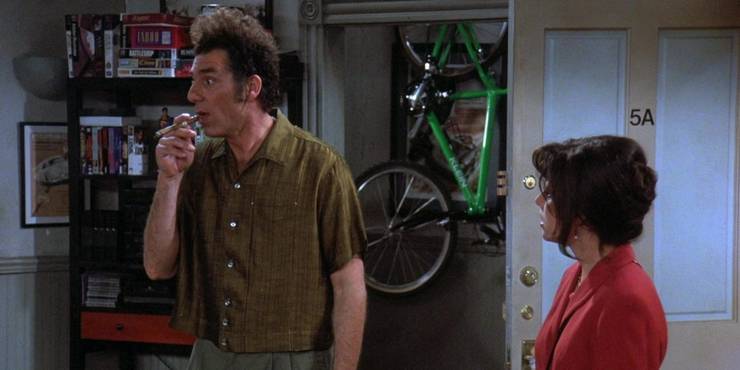
The season began with Susan, it should certainly end with her. In what is possibly the darkest twist of the series, George’s desperate anxiety regarding the engagement is given an out. He actually wishes for Susan to die, just to escape his wedding, which makes him unlikable like never before. He spends the duration of the episode seeking some way to get Susan to call the wedding off. But the twist ending certainly subverts expectations beyond compare—not just for the show itself, but any peers on television.
Guest star Janeane Garofalo is superb as a duplicate Jerry, with the same comedic sensibilities, her character even bearing the same initials. But ultimately, this is one of the few episodes of later seasons that settles on a single plot that unites everyone. And it definitely delivers, albeit with the most macabre direction a sitcom can muster.
1. Season 5: The Opposite – 9.6

George had spent such a majority of the show getting kicked while he was down, it’s outrageously funny to watch him succeed. Further, in the only possible way—through enacting the opposite of every instinct. The idea alone is nothing short of genius, allowing George to absolutely let loose against every social expectation imaginable. It’s an infectious freedom that probably allows the audience some vicarious enjoyment in addition to the innate laughs.
Concurrently, Elaine’s position in life sinks, ultimately allowing both of these characters to explore totally novel attitudes. Each protagonist displays every facet of luck, throughout the episode. Kramer is lucky, then unlucky. George triumphs, Elaine fails, and Jerry “breaks even”. It’s a fascinating, clever, witty story that indulges the implausible for pure entertainment, involving every protagonist, whose iconic actors still thrive.


